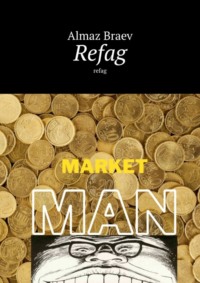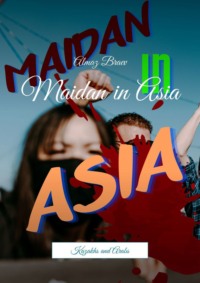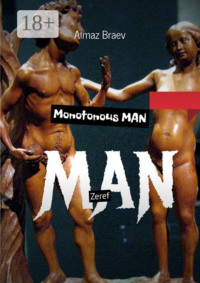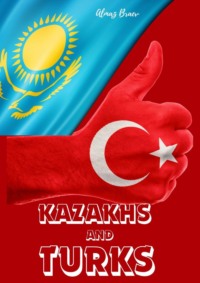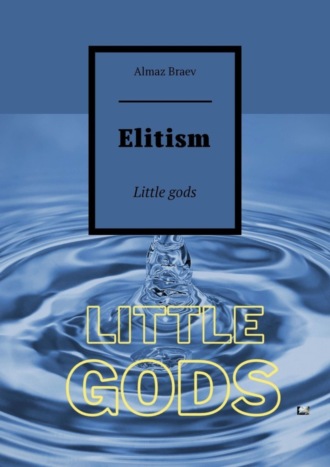
Полная версия
Elitism. Little gods
As a result of the new elections, the protégé of Muslim fundamentalists, Mohammed Morsi, came to power. The semi-literate Egyptian province, the most traditional, conservative electorate, voted for Morsi. The urban population, which wants to separate religion from the state, lost for the first time. And this is although Mubarak brought the literacy rate of the population to 70%. But what can modernization do in such a favorable climate? (Revcon has a zeref’s loop. It means overpopulation. Modernization is powerless here). The main items of replenishment of the Egyptian budget are revenues from the Suez Canal and from tourism. Thus, Egypt as a state resembles just a large-scale renter. Actually, Saudi Arabia is thriving due to the exploitation of mineral resources, so what’s the big deal? For us, the whole question is interesting: can tourism change the thinking, and hence the reflection of the Egyptians? It is difficult but possible, to carry out modernization in such traditional conditions. This means only one thing: the population of a hundred million people will shake more than once. Without the modernization of consciousness, all traditional peoples know only one thing that represents the whole traditional meaning – reproduction. Breeding to win (whom to win? No one knows. For nomads, one law is a tradition. And for tradition, the more children are the more joyous. These included administrative and military victories. If the larger the army, the more likely it is to have power. Even democratic principles confirm that the only majority choose the government.
Here we focus on the terms of the government of the Arab so-called presidents. Despite the statements about freedom and democracy, all of them, as we can see, have ruled for a very long time, no one wanted to leave their post quickly and on time. The Eastern circumstances themselves hinted that the upgrade itself means nothing. If the population «does not move» from place to place, but lives in one place for a very long time, it will always be conservative.
Chapter IV
Nomads have no nationalism
Nationalism is ahead. Old or new?
Everyone knows that empires founded by nomads do not last long. Some nomadic dynasties ruled for no more than a century. But this cannot be said about the Arab Caliphate. The dynasties changed, but the Caliphate remained because the Caliphate was more than a vast land that was subject to different caliphs. The Caliphate was based on faith in Allah and the works of His Messenger. People who recognized the Koran as a holy book were called Muslims. These former nomads were already Muslims, not Arabs, Berbers, Syrians. This is a significant point. It also explains to the readers the main reason for the Arab revolutions at the beginning of the XXI century.
First, we must look at the history of Europe, where nationalism originated. Europeans, too, at first did not know how to express their new feelings. This new feeling grew among them in the form of protest. In the Middle Ages, people from birth belonged to different classes. No one was allowed to do anything above their social status. The population of the cities grew rapidly. People mingled in the shopping malls and nearby of the city. When there were a crisis and famine, a large crowd could gather in the main square. Together with the anti-monarchist impulses and the revolutionary mood, all the peoples of Europe then gradually turned into patriots. All small street vendors and medium-sized manufacturers (refags) were united by the hatred of the aristocracy (for the Zerots) because they controlled everything, had the protection of the king, and paid no taxes. A bourgeois, a street vendor, had money, but no rights and a poor nobleman in a tattered doublet could kick any rich man with the words: How dare a dog stand here, get out of here! All the refags felt morally humiliated, even though they could afford to buy all sorts of things, including the most expensive ones. But they didn’t know how to prove their right. Not to show, they could show because they could buy almost everything, but to prove it. No one and nothing could unite the outraged of new egoists.
But the French encyclopedists came to their aid. The crowd found its moral authorities in the various employees, the children of provincial lawyers. These provincial lawyers were their people in spirit and understood that they were connected with the traffickers by old connections. Who does not believe, can look at the origin of the leaders of the French Revolution?
To somehow dilute, so, the amorphous solidarity of completely lonely peasants (the former Zerefs, deprived of kindred roots), the philosopher Voltaire threw into the crowd the slogan: «Crush the reptile!»
Who is this reptile? Imagine a philosopher being so brazen as to call the Catholic Church a reptile. Voltaire was not interested in its varieties. With equal fury, he attacked Catholics, Protestants, and Jews.
And only people without traditional roots could respond to these calls.
What did that mean?
This suggested that there was a lot of such human material accumulated in eighteenth-century Paris. The most terrible phenomenon for any state is the Zerefs with their consciousness clouded by hunger and irresponsibility. First, they are deprived of responsibility because they are deprived of the control of the traditional community then the crowd becomes fearless. The crowd loses its fear. The crowd loses its fear even because it has leaders. The children of provincial officials also want fame and power. They don’t talk about it at first. All people, including revolutionaries, obey tradition, but they are publicly hypocritical. Even the Zelots men (supermen) are hypocritical. They speak in a language that the crowd understands. These revolutionaries are indisputably zealots (supermen), at least the most talented of the revolutionary leaders because they bring novelty to the tradition. (They improve the tradition. Any tradition needs to be modernized. The more people will be born after modernization, the more perfect the tradition) So they create a new unscrupulous hypocritical elite.
Such an elite creates itself as a future aristocracy. They even sacrifice themselves for the declared high goals, which means they are lucky, they turn into a new caste of rulers thanks to egalitarian slogans. They resort to the aid of the mob to overthrow their feudal opponents. And from that moment on, they have no choice but to shout all the time: «People! You’re in my heart!»
Then this baton will be picked up by new socialist revolutionaries. And the whole world history will follow the path of choosing the elite from the representatives of the excited crowd. Each time, the crowd will delegate the most active and seemingly fair men to the very top. In fact, the crowd is not as stupid as it seems. They will be sent up as the most convenient ones. Every excited crowd will be it seems that it is singling out the most convenient men because the neophytes are always shouting about love for the people, in fact, the neophytes are part of the people and this is part of the tradition is not the worst part, maybe even the best at the moment. Then the neophytes, as a rule, deceive the practical crowd, it turns out, in the end, stupid. Everything is fine and this is the norm of the moment. This is only the end of the love union. Egalitarian tricks play a cruel joke on society and the country.
This selection from century to century of people from the bottom completely deprives these people of the state. People from the bottom never need the state, they are also devoid of nobility. Well, what kind of nobility do people from the bottom have? They say very simply and easily: People! I love you! And the people again believe such scoundrels.
Look at any sampling process. The more a scoundrel swears allegiance to the people, the more this man onlooker, who resembles a practical woman all at once, believes this candidate. The longer this false egalitarian practice continues, the less chance the state has for the future.
Of course, we are talking about creating a new elite and a new ideology.
But we completely forgot about the Arabs and the Arab spring.
The Arabs were happily deprived of such hypocrites. Therefore, they bypassed the era of nationalism that Europe passed in its time. The Arabs turned out to be bad nationalists. Although of course, this did not prevent the Copts in Egypt from becoming an ethnic minority in arithmetic progression. But the Arabs did not apply the collective superiority of the crowd, as is customary in any nationalism. They applied the confessional moment if, of course, this spontaneous process can be called application. What an interesting moment. There was no nationalism, and there were very few Coptic Christians. Who can explain this phenomenon? It is not necessary to shout at every corner about your superiority. People usually believe in something very quietly, you can say that they believe in themselves and pray silently.
Chapter V
Intermittent and a full circuit
The traditional world (regime) always needs a boost of patriotism.
This patriotism can be different. Often people confuse concern for society with concern for their family. Each individual family cannot be outside the community and outside the state. The small people will always stay in their homes in a difficult hour. They will leave the dwelling when the enemy knocks on their houses. Often Patriots didn’t know what they were getting excited about. They couldn’t even know what they were expressing. They showed that they are attached, love the place where they were born. A place where their loved ones live and which they must protect. Before they could call each other patriots, they would call each other citizens, and to complete that, they had to overthrow their traditional elite.
This means that this elite is absolutely not related to them, and they are looking for people close to them in spirit. This spirit can also be caused by a material union, or rather by the solidarity of people of the same circle, of the same professional occupation, even of living on the street of the same craft. These people realized that they had common interests. These are almost the same interests as the interests of people of the same tribe. But the people of the same village could have blood interests because they are relatives or the interests of the community. In any case, it was the interests of the people living in one locality against the people living in another locality, with the latter and often attacking the former for the interests of the entire community. Nationalism is still a long way off. In order for people living on the same street to realize that they have the same interests as the primitive communities, they simply did not know how to create trade unions. But they were already outraged that they were being bullied and not considered human. The feudal hierarchical society irritated them individually. They did not love the king or the nobles (who loves someone wipes his feet on you, despises you, and sees you like a dog?), although they obeyed tradition. The feudalism could transfer the old discipline among relatives to the new cities because the Zerefs themselves grew up and obeyed strict discipline from childhood, but began to lose force in cities. Even all sorts of bastards born of street girls and other rootless elements who have found shelter in the slums of the city have become dangerous to traditional order, morals, and discipline. The appearance of the rootless was a tacit warning of danger, and morals were decaying. It was this twice-rootless, uncultured, ill-mannered element that was sensitive to any freethinking because they could create criminal gangs. In order for urban philistinism to completely lose its connection in time and space with its world of prohibitions, it had to starve. No hungry American Indian will go to plunder his tribe because of hunger. He’d rather starve to death. Moreover, the ancient hunter and warrior could always hunt or catch fish. Only an Indian child can steal but precisely because he is a child.
The philistines may rise in the whole street and in the whole city and demand bread. They have the right to demand from the government, demand from the masters, just as hungry children ask their parents for food. The mob may not immediately become enraged and furious to tear apart its elite, but it always does this intoxicated of provocateurs and from impunity. Only a very strong-willed man, a real dictator could have stopped the crowd, brought it to reason with a brutal act of violence. This has often happened in history and now sometimes happens in the world. Every Eastern tyrant knows about it. It is in the east that the elite is more militant and, one might say, savage. But it is created from the same traditional material. Every father, family dictator in Asia knows that if he shows cowardice and kindness, it will cost him and his family dearly. The children will grow up worthless. And society will blame such a weak father for this.
Of course, there are very ancient cities in the east. But popular riots in these cities were very rare. Maybe the freedom-loving Samarkand only can boast of the self-will of its population, that even the great conqueror Timur tried to protect himself with acts of intimidation. But as soon as the grandson of Timur Ulugbek did not do what the rulers do, built an observatory, studying the sky and the stars, he was immediately executed. But it wasn’t the crowd that did it. In the east, the crowd never mattered. Therefore, Europeanized natives and guests ask themselves questions. You have, they say, such a dictator in power, he has ruled for thirty years, there is such corruption around, and you are silent. However, wherein the east has any aristocrat voluntarily resigned from office? Where, what dictator sat on the throne for less than ten years? What modern autocrat before the Arab Spring did not hold referendums on extending the term of power? Everywhere you look in Asia, referendums have been held and are still being held to extend the term of power (Hosni Mubarak ruled for 30 years, Yemeni dictator Saleh ruled for 33 years, Libyan leader Gaddafi for almost 42 years, and so on) and the people are happy with this. This is how propagandists portray us. It’s just that in Asia, including in all Arab countries, those who live in cities are all former nomads. And the dictators, whereby force, and whereby so-called reforms, dragged the howling provincials into the cities. No matter what city you take, even if it is very ancient, no matter what state, even if it is post-Soviet, but these cities have a population with a short period of urbanization.
Конец ознакомительного фрагмента.
Текст предоставлен ООО «Литрес».
Прочитайте эту книгу целиком, купив полную легальную версию на Литрес.
Безопасно оплатить книгу можно банковской картой Visa, MasterCard, Maestro, со счета мобильного телефона, с платежного терминала, в салоне МТС или Связной, через PayPal, WebMoney, Яндекс.Деньги, QIWI Кошелек, бонусными картами или другим удобным Вам способом.


